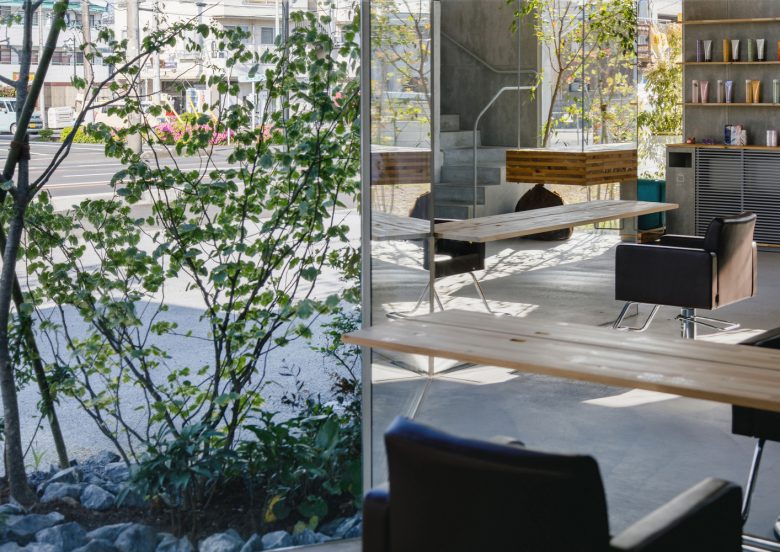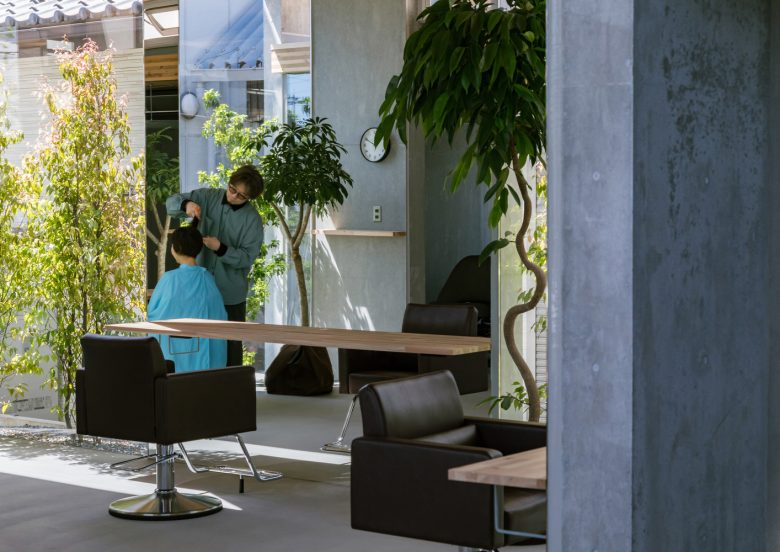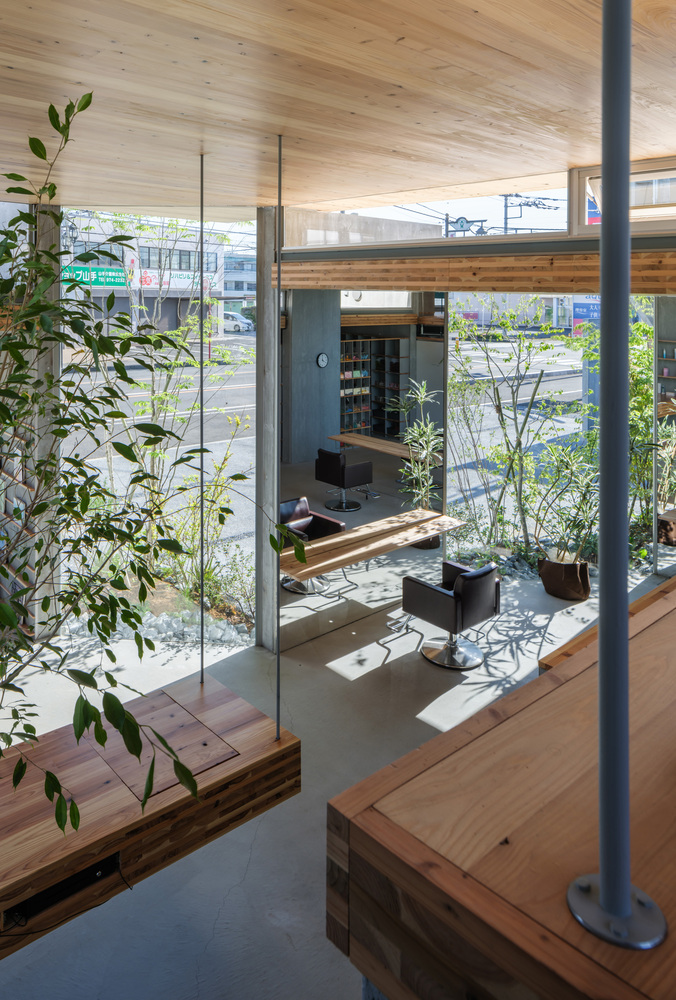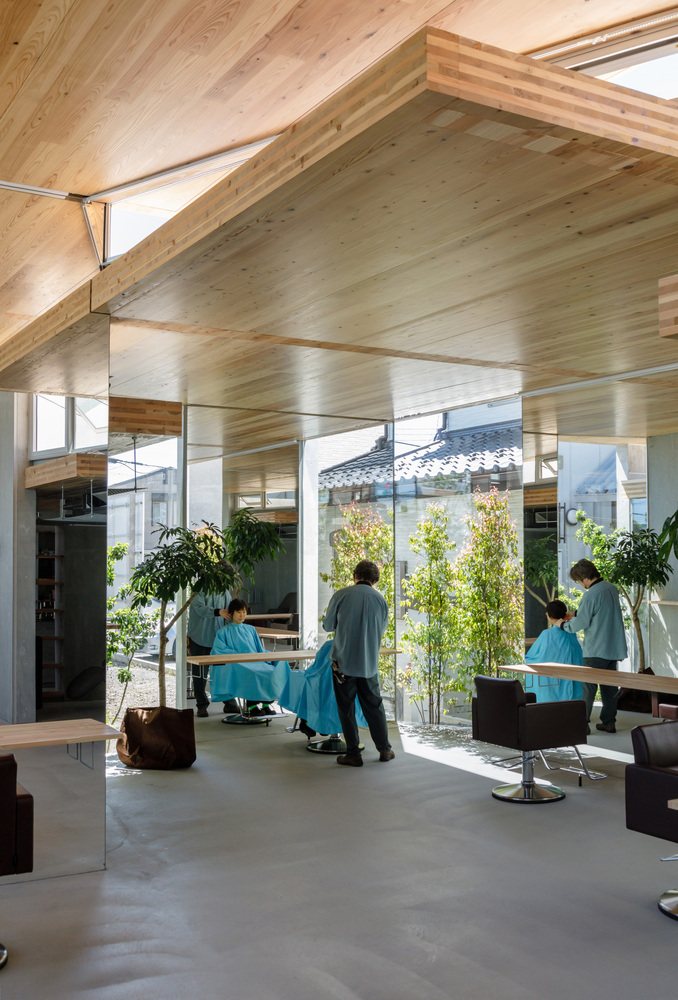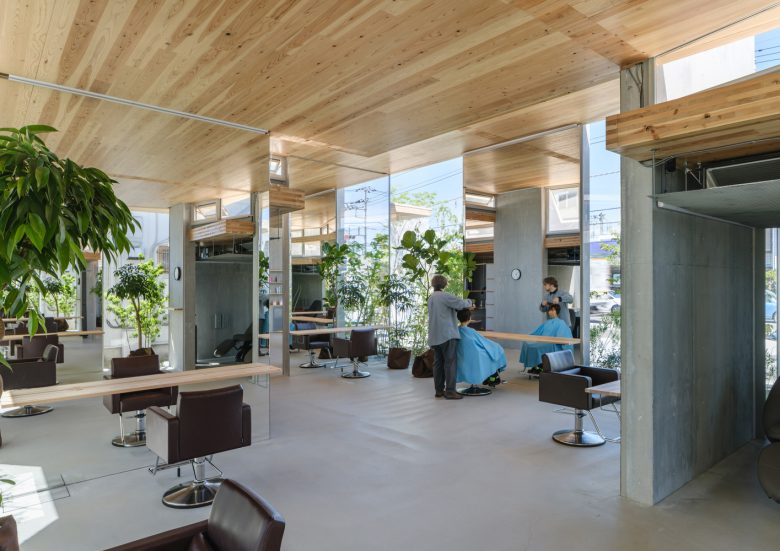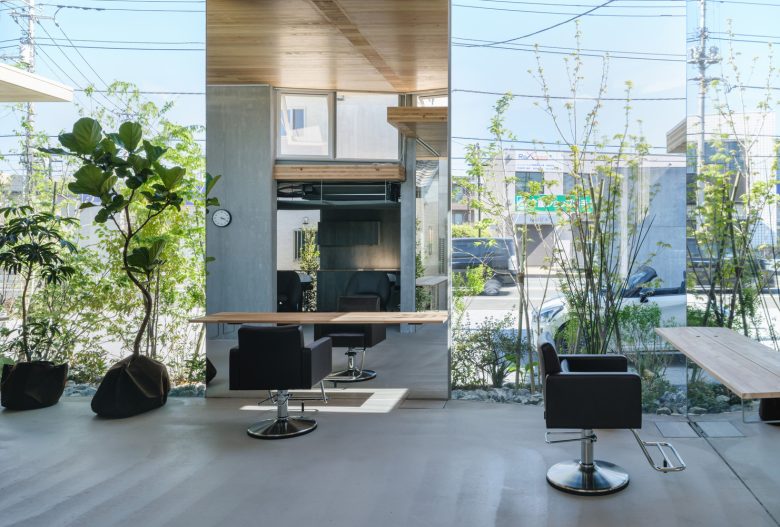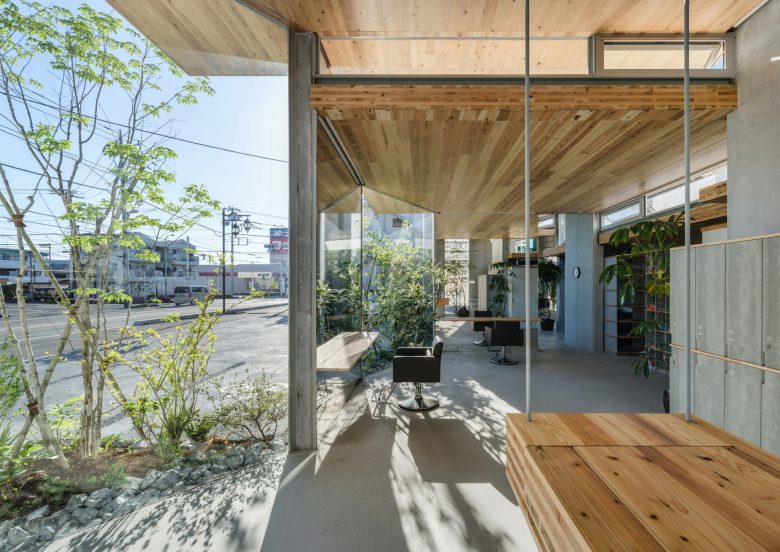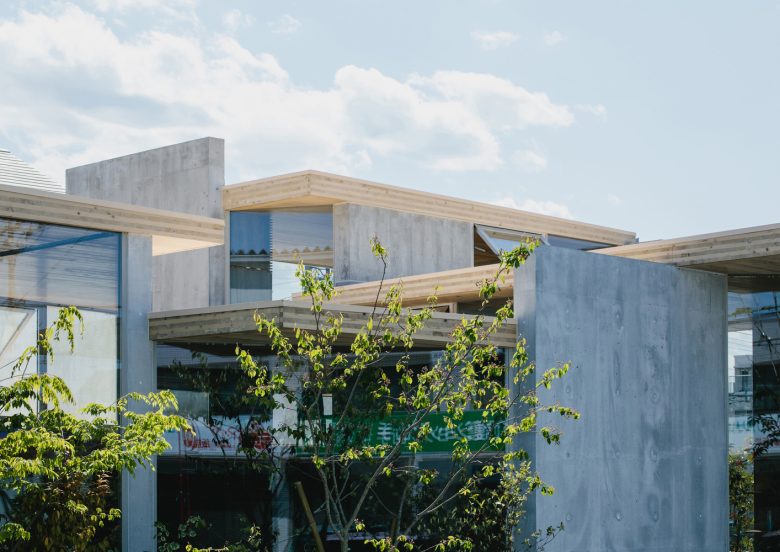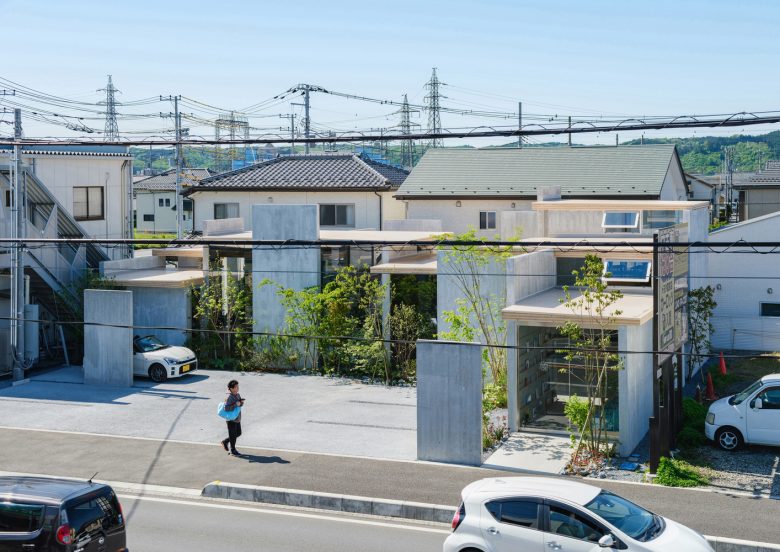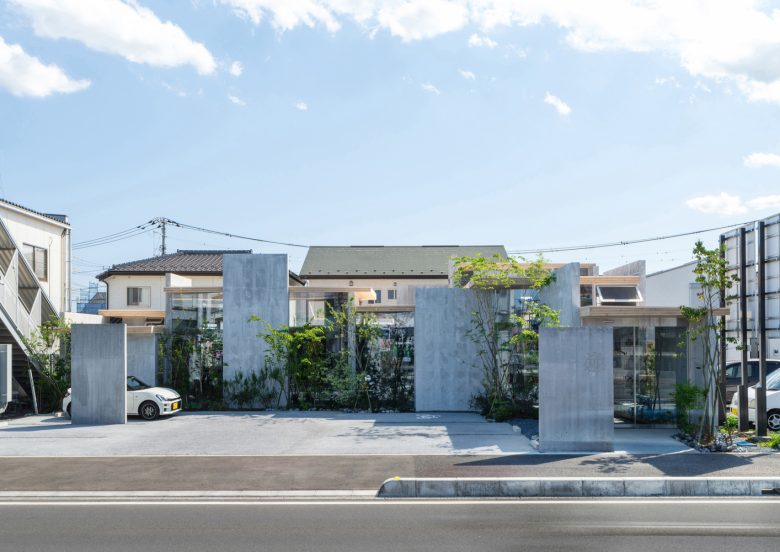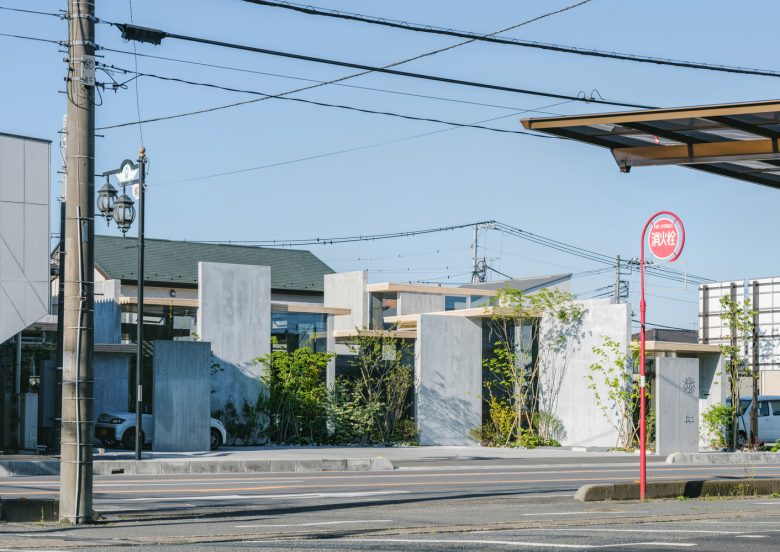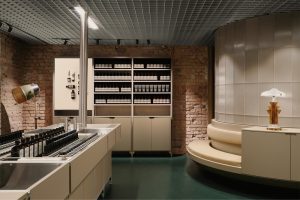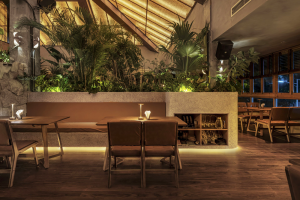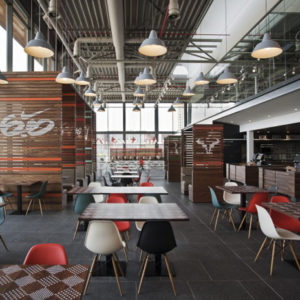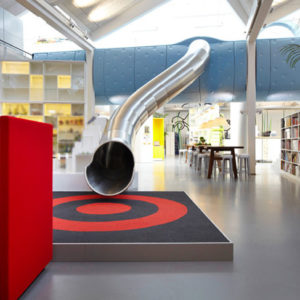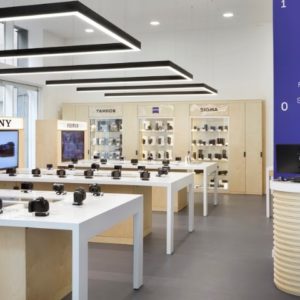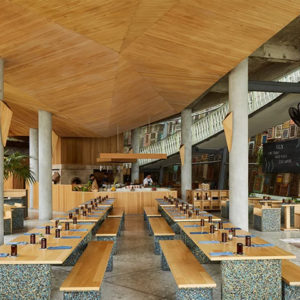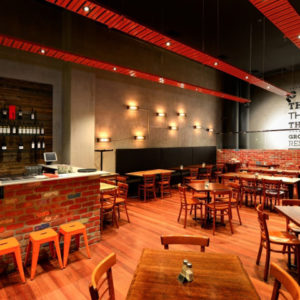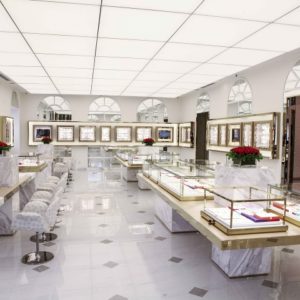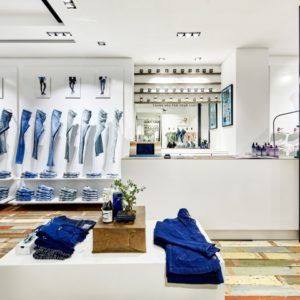
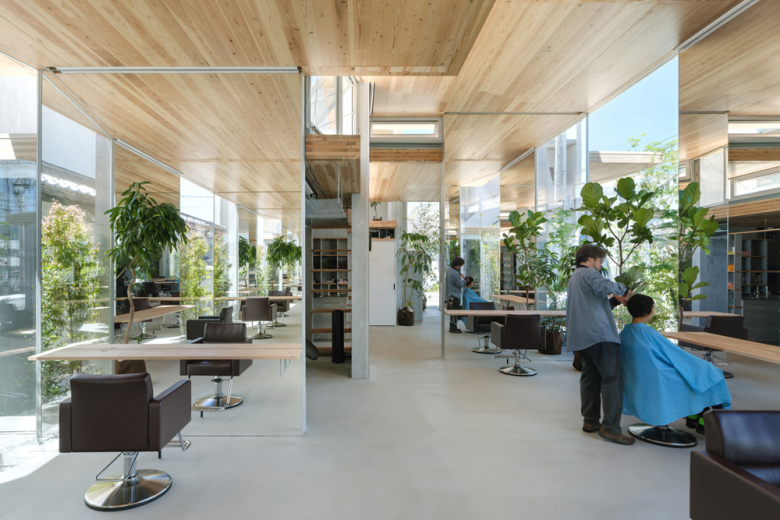
This is a hair salon located on a local roadside. Cars come and go all day long on the front road, and most of the surrounding area is occupied by parking. But three-fourths of the city area is covered in forest, where forestry is flourishing and timber has long been transported by raft. Although the utilization of local resources is being promoted, the transition to wooden, non-residential, low-rise buildings has yet to progress.
The client requested bright spaces, ventilation performance effective against viruses, and a sustainable architecture to ensure this. Is it possible to create a natural architecture that reflects these diverse conditions? Rather than thinking about the design or form, we started thinking about architecturally recombining the hair salon, the townscape, and the objects.
Cut spaces with large mirrors (RC walls) that exceed human scale are arranged in a staggered manner, and large wooden desks (CLT roofs) are placed between them. They are joined using the same simple construction method as furniture, using only angles and screws. RC walls can handle out-of-plane loads, and CLT roofs create long-span frames without beams. They use the right materials in the right places for fire protection and environmental performance and maximize the expression of wood grain while reducing weight, heat load, and cost. Indirect light shines between the roofs, and the wind flowing along the roofs promotes effective gravity ventilation without raising hairs.
Plantings are amplified by reflection, creating an environment surrounded by greenery. By replacing the timber that was once washed away with roofs and incorporating the reflections of cars on the roadside, the flowing landscape of the past and present is superimposed on the building. The small activity elements of the hair salon transcend meaning, purpose, and scale, creating a natural architecture in which objects are mixed in a multilayered manner.
Architects: Ateliers Takahito Sekiguchi
Lead Architect: Takahito Sekiguchi
Architect: Kazumasa Arai
Furniture Design: Nikko, Kenji Kawashima, Ayaka Hamasho
Photographs: Yosuke Ohtake
